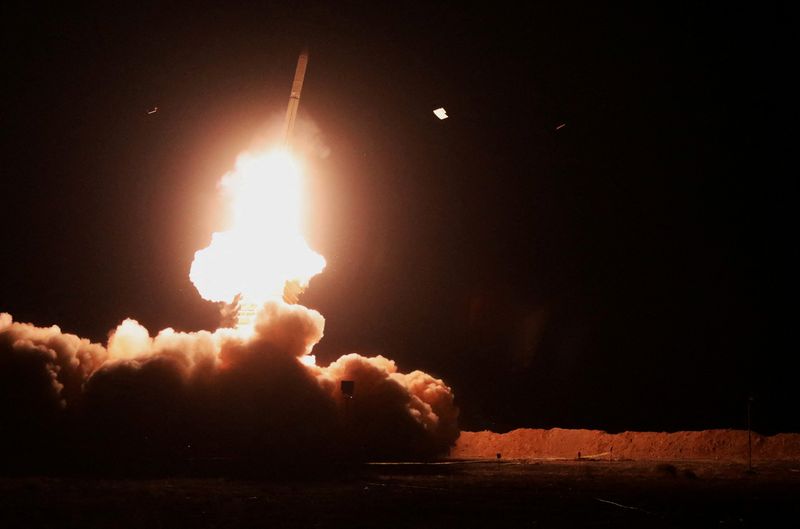Investors on edge over Israel-Iran conflict, anti-Trump protests
By Saqib Iqbal Ahmed and Suzanne McGee
NEW YORK (Reuters) -Dual risks kept investors on edge ahead of markets reopening late on Sunday, from heightened prospects of a broad Middle East war to U.S.-wide protests against U.S. President Donald Trump that threatened more domestic chaos.
Israel launched a barrage of strikes across Iran on Friday and Saturday, saying it had attacked nuclear facilities and missile factories and killed a swathe of military commanders in what could be a prolonged operation to prevent Tehran building an atomic weapon.
Iran launched retaliatory airstrikes at Israel on Friday night, with explosions heard in Jerusalem and Tel Aviv, the country's two biggest cities.
On Saturday Prime Minister Benjamin Netanyahu said Israeli strikes would intensify, while Tehran called off nuclear talks that Washington had held out as the only way to halt the bombing.
Israel on Saturday also appeared to have hit Iran's oil and gas industry for the first time, with Iranian state media reporting a blaze at a gas field.
The strikes knocked risky assets on Friday, including stocks, lifted oil prices and prompted a rush into safe havens such as gold and the dollar.
Meanwhile, protests, organized by the "No Kings" coalition to oppose Trump's policies, were another potential damper on risk sentiment. Hours before those protests began on Saturday, a gunman posing as a police officer opened fire on two Minnesota politicians and their spouses, killing Democratic state assemblywoman Melissa Hortman and her husband.
All three major U.S. stock indexes finished in the red on Friday, with the S&P 500 dropping 1.14%. Oil and gold prices soaring. The dollar rose.
Israel and Iran are "not shadowboxing any more," said Matt Gertken, chief geopolitical analyst at BCA Research. "It's an extensive and ongoing attack."
"At some point actions by one or the other side will take oil supply off the market" and that could trigger a surge in risk aversion by investors, he added.
Any damage to sentiment and the willingness to take risks could curb near-term gains in the S&P 500, which appears to have stalled after rallying from its early April trade war-induced market swoon. The S&P 500 is about 20% above its April low, but has barely moved over the last four weeks.
"The overall risk profile from the geopolitical situation is still too high for us to be willing to rush back into the market," said Alex Morris, chief investment officer of F/m Investments in Washington.
U.S. stock futures are set to resume trading at 6 p.m. (2200 GMT) on Sunday.
Latest News
- Is This Market-Thumping Stock-Split Stock a Buy Right Now With $10,000?
- You Struck It Rich With Bitcoin. How to Leave It to Your Heirs.
- This Detroit man used to sleep in his van — then he took $27 of cleaning supplies and turned it into $1M
- Best CD rates today, June 14, 2025 (best account provides 5.5% APY)
- Best high-yield savings interest rates today, June 14, 2025 (earn up to 4.3% APY)
- Will $5,000 Invested in Amazon Stock Make You $100,000 in a Decade?













